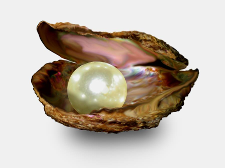The Uses of Business
Contrasting approaches to money
Luke 12:15. And He said to them, See, and guard yourselves from avarice; for no one’s life consists in the excess of his belongings.
TCR 800. The Dutch in the Spiritual World
The Christians among whom the Word is read, and where there is a knowledge and acknowledgment of the Lord the Redeemer and Savior, are in the center of the nations and peoples of the entire spiritual world, because with them there is the greatest spiritual light…. And because the Dutch have that light more deeply and fully joined into their natural light than others, and in consequence are more receptive of rational [considerations], they are granted dwelling places in that Christian center in the east and south—in the east, because of their capacity to receive spiritual heat, and in the south, because of their capacity to receive spiritual light…. Those who excel in love are in the east and those who excel in intelligence in the south.
TCR 801. And the reason why the Dutch occupy those quarters of the Christian center is that doing business is the aim of their love, and money is a mediate love serving this aim; and such a love is spiritual. But where money is the final love and business a mediate love serving it, as with the Jews, that love is natural and springs from avarice.
The love of business, when it is the end [or aim], is spiritual because of its use, in that it serves the common good, to which indeed the man’s own good is closely conjoined. And the man’s own good appears to him to be of more importance than the common good, because he thinks from his natural man. Nevertheless, when business is the end, the love of it is also the end, and in heaven everyone is regarded in accordance with the love that is his end. For the love that is his end may be likened to the ruler of a kingdom or the master of a house, and the other loves to their subjects or servants. Moreover, the love that is his end has its seat in the highest or inmost parts of the mind, while the mediate loves are below it or outside of it, and subservient to its every nod.
The Dutch are in that spiritual love more than any others. But the Jews are in that love inverted. Consequently, their love of business is purely natural, containing within it nothing of the common good, but solely their own good.
DP 215:6. What the love of dignities and riches for their own sake is, and what the love of dignities and riches for the sake of uses is.
DP 215:13. The difference between these can scarcely be recognized by man, because man does not know whether he is led by the devil or by the Lord. He that is led by the devil performs uses for the sake of self and the world; but he that is led by the Lord performs uses for the sake of the Lord and heaven. And all who shun evils as sins perform uses from the Lord, while all who do not shun evils as sins perform uses from the devil, since evil is the devil, and use or good is the Lord. In this and in no other way is the difference recognized. In external form they appear alike, but in internal form they are wholly unlike. One is like gold within which is dross, the other is like gold with pure gold within. One is like artificial fruit, which in external form appears like fruit from a tree, although it is colored wax containing within it dust or bitumen; while the other is like excellent fruit, pleasing in taste and smell, and containing seeds within.
Questions and Comments
- How does a good love of business serve the common good?
- The Dutch, at least at the time of the Heavenly Doctrine, had their spiritual light more fully and deeply joined into their natural light. How can we too apply spiritual light to natural uses, and ground spiritual light deeply in application to life?
- Are there other nations or peoples who have a reputation for avarice? What other bad reputations do some nations have? Do these national qualities mean that such people are not free to shun those evils?
- The only clue as to whether our motives are heavenly or selfish is whether we look to the Lord and shun evils as sins. What does this mean in practical terms? What do we need to do or not do?
| previous |  |
next |
|---|


